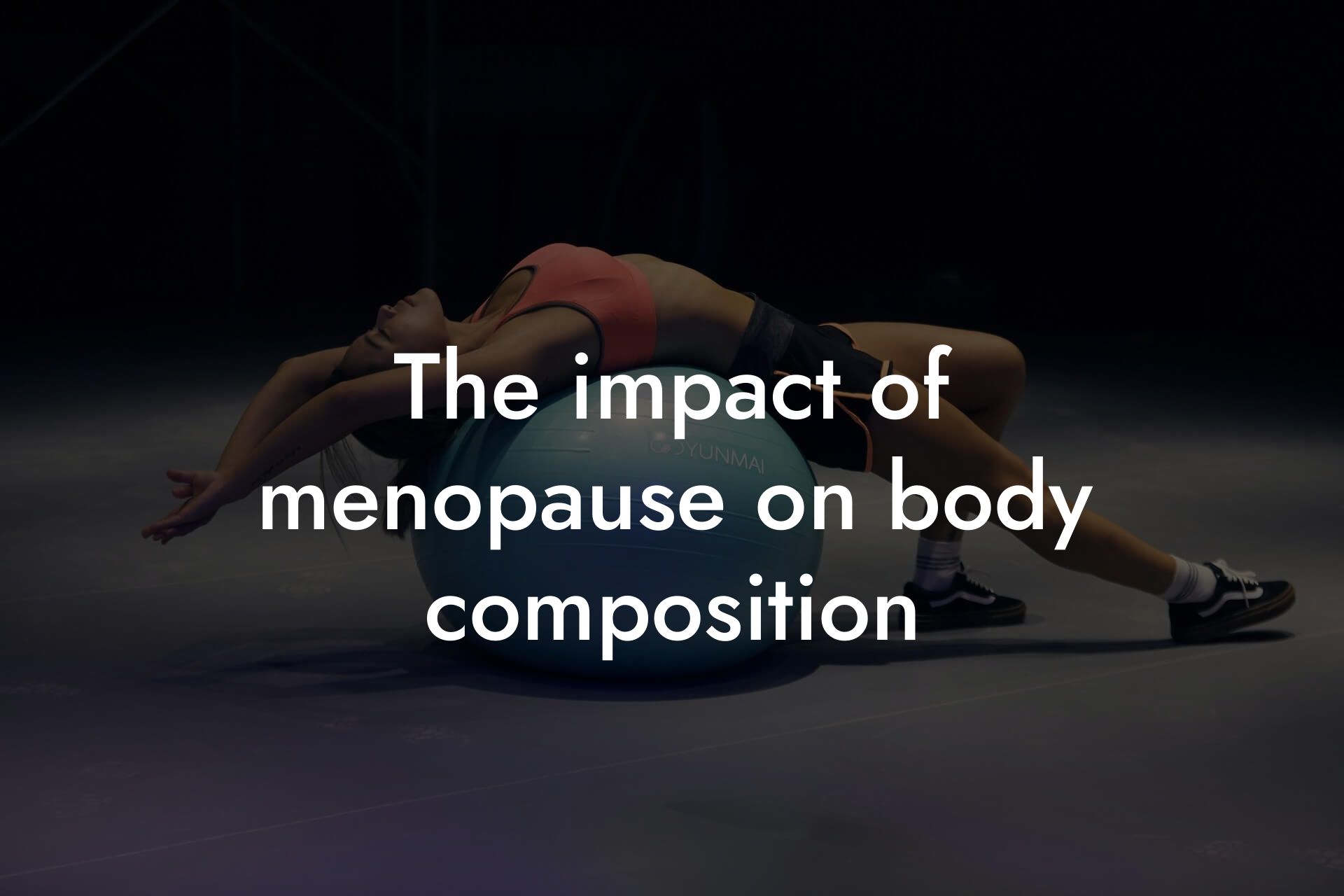As a high-earning professional, you understand the importance of maintaining a healthy and fit physique. However, despite your best efforts, you may be struggling to achieve your muscle growth goals. One often overlooked factor that could be hindering your progress is hormonal imbalances. In this article, we'll delve into the world of hormones and explore how imbalances can impact muscle growth, and what you can do to address them.
Table of Contents
- Hormones and Muscle Growth: The Basics
- Testosterone: The King of Muscle-Building Hormones
- Growth Hormone: The Muscle-Building Stimulant
- IGF-1: The Muscle-Building Mediator
- Cortisol: The Muscle-Breaking Hormone
- Causes of Hormonal Imbalances
- Signs and Symptoms of Hormonal Imbalances
- Diagnosing Hormonal Imbalances
- Treating Hormonal Imbalances
- Frequently Asked Questions
Hormones and Muscle Growth: The Basics
Hormones play a crucial role in regulating various bodily functions, including muscle growth and development. When it comes to muscle growth, there are several key hormones that come into play. These include testosterone, growth hormone, insulin-like growth factor-1 (IGF-1), and cortisol. Each of these hormones has a unique role in the muscle-building process, and imbalances can have a significant impact on your progress.
Testosterone: The King of Muscle-Building Hormones
Testosterone is often referred to as the "king" of muscle-building hormones. It's responsible for regulating muscle protein synthesis, which is the process by which your body builds new muscle tissue. Testosterone also plays a role in bone density, red blood cell production, and libido. Low testosterone levels, also known as hypogonadism, can lead to decreased muscle mass, strength, and bone density.
In addition to its role in muscle growth, testosterone also has a profound impact on overall health. Low testosterone levels have been linked to an increased risk of chronic diseases, such as obesity, diabetes, and cardiovascular disease. If you're struggling with low testosterone, it's essential to address the issue to avoid these potential health risks.
Growth Hormone: The Muscle-Building Stimulant
Growth hormone is another critical hormone involved in muscle growth. It stimulates the production of IGF-1, which in turn, promotes muscle protein synthesis. Growth hormone also plays a role in regulating bone density, immune function, and cellular regeneration. Low growth hormone levels can lead to decreased muscle mass, strength, and bone density, as well as an increased risk of chronic diseases.
IGF-1: The Muscle-Building Mediator
IGF-1 is a protein produced in response to growth hormone stimulation. It plays a critical role in regulating muscle protein synthesis and is essential for muscle growth and development. IGF-1 also has a role in regulating bone density, immune function, and cellular regeneration. Low IGF-1 levels can lead to decreased muscle mass, strength, and bone density, as well as an increased risk of chronic diseases.
Cortisol: The Muscle-Breaking Hormone
Cortisol is often referred to as the "stress hormone." While it's essential for responding to stress and regulating blood sugar levels, chronically elevated cortisol levels can have a devastating impact on muscle growth. Cortisol breaks down muscle tissue, leading to muscle loss and decreased strength. It also promotes the storage of fat, particularly in the abdominal region.
Causes of Hormonal Imbalances
Hormonal imbalances can occur due to a variety of factors, including:
Genetics: Some people may be more prone to hormonal imbalances due to genetic factors.
Aging: Hormone levels naturally decline with age, which can lead to imbalances.
Lifestyle factors: Poor diet, lack of exercise, and chronic stress can all contribute to hormonal imbalances.
Medical conditions: Certain medical conditions, such as hypothyroidism or Cushing's syndrome, can cause hormonal imbalances.
Medications: Certain medications, such as steroids and hormone replacement therapy, can disrupt hormone levels.
Signs and Symptoms of Hormonal Imbalances
The signs and symptoms of hormonal imbalances can vary depending on the specific hormone involved. However, some common signs and symptoms include:
Decreased muscle mass and strength
Increased body fat, particularly in the abdominal region
Low libido
Decreased bone density
Chronic fatigue
Mood changes, such as depression and anxiety
Sleep disturbances
Diagnosing Hormonal Imbalances
Diagnosing hormonal imbalances typically involves a combination of physical examination, medical history, and laboratory tests. Your healthcare provider may perform a physical examination to look for signs of hormonal imbalances, such as decreased muscle mass or increased body fat. They may also take a detailed medical history to identify potential underlying causes of hormonal imbalances.
Laboratory tests may include:
Blood tests to measure hormone levels
DEXA scans to measure bone density
Body composition analysis to measure muscle mass and body fat percentage
Treating Hormonal Imbalances
Treating hormonal imbalances typically involves a combination of lifestyle changes, nutritional interventions, and hormone replacement therapy (HRT). Lifestyle changes may include:
Regular exercise, including resistance training and high-intensity interval training
A balanced diet that includes plenty of protein, healthy fats, and complex carbohydrates
Stress management techniques, such as meditation and yoga
Getting adequate sleep and maintaining a healthy sleep schedule
Nutritional interventions may include:
Supplementing with vitamins and minerals, such as vitamin D and omega-3 fatty acids
Consuming hormone-boosting foods, such as lean meats, fish, and eggs
HRT may be necessary in some cases, particularly for those with severe hormonal imbalances. However, HRT should only be used under the guidance of a qualified healthcare provider.
In conclusion, hormonal imbalances can have a significant impact on muscle growth and overall health. By understanding the role of hormones in muscle growth, identifying the causes and signs of hormonal imbalances, and seeking proper diagnosis and treatment, you can take control of your hormone levels and achieve your fitness goals. Remember, a healthy and balanced hormone profile is essential for optimal muscle growth and overall well-being.
Frequently Asked Questions
What is a hormonal imbalance, and how does it affect muscle growth?
A hormonal imbalance occurs when there is an excess or deficiency of certain hormones in the body. Hormones play a crucial role in regulating various bodily functions, including muscle growth and development. An imbalance can disrupt this process, leading to difficulties in building or maintaining muscle mass.
What hormones are involved in muscle growth and development?
The primary hormones involved in muscle growth and development are testosterone, growth hormone, and insulin-like growth factor-1 (IGF-1). These hormones work together to regulate muscle protein synthesis, muscle fiber growth, and muscle repair.
What are the common symptoms of a hormonal imbalance affecting muscle growth?
Common symptoms of a hormonal imbalance affecting muscle growth include fatigue, low libido, decreased muscle mass, increased body fat, and difficulty recovering from workouts. If you're experiencing any of these symptoms, it's essential to consult with a healthcare professional to rule out any underlying hormonal imbalances.
How does testosterone affect muscle growth?
Testosterone is a critical hormone for muscle growth and development. It promotes muscle protein synthesis, increases muscle fiber size, and enhances muscle strength. Low testosterone levels can lead to decreased muscle mass, strength, and endurance.
What are the signs of low testosterone?
Common signs of low testosterone include low libido, erectile dysfunction, fatigue, decreased muscle mass, and osteoporosis. If you're experiencing any of these symptoms, it's essential to consult with a healthcare professional to rule out low testosterone.
How does growth hormone affect muscle growth?
Growth hormone is produced by the pituitary gland and stimulates the production of IGF-1. IGF-1 promotes muscle growth and development by increasing muscle protein synthesis and muscle fiber size. Growth hormone also helps regulate bone density and body composition.
What are the signs of growth hormone deficiency?
Common signs of growth hormone deficiency include decreased muscle mass, increased body fat, low energy, and decreased bone density. Growth hormone deficiency can also lead to decreased athletic performance and recovery.
How does insulin-like growth factor-1 (IGF-1) affect muscle growth?
IGF-1 is a protein produced in response to growth hormone stimulation. It promotes muscle growth and development by increasing muscle protein synthesis and muscle fiber size. IGF-1 also helps regulate bone density and body composition.
What are the signs of IGF-1 deficiency?
Common signs of IGF-1 deficiency include decreased muscle mass, increased body fat, low energy, and decreased bone density. IGF-1 deficiency can also lead to decreased athletic performance and recovery.
Can stress affect hormone levels and muscle growth?
Yes, chronic stress can affect hormone levels and muscle growth. Stress triggers the production of cortisol, a hormone that can disrupt the balance of other hormones, including testosterone and growth hormone. Elevated cortisol levels can lead to decreased muscle mass and increased body fat.
How does sleep affect hormone levels and muscle growth?
Sleep plays a critical role in hormone regulation and muscle growth. During sleep, the body produces growth hormone, which helps regulate muscle growth and development. Lack of sleep can disrupt hormone balance, leading to decreased muscle growth and recovery.
Can nutrition affect hormone levels and muscle growth?
Yes, nutrition plays a critical role in hormone regulation and muscle growth. A diet rich in protein, complex carbohydrates, and healthy fats can support hormone production and muscle growth. Conversely, a diet lacking in essential nutrients can disrupt hormone balance and impede muscle growth.
What role does exercise play in hormone regulation and muscle growth?
Exercise, particularly resistance training, can stimulate hormone production and muscle growth. Resistance training triggers the production of testosterone, growth hormone, and IGF-1, which can help regulate muscle growth and development.
Can certain medical conditions affect hormone levels and muscle growth?
Yes, certain medical conditions, such as hypogonadism, growth hormone deficiency, and Cushing's syndrome, can affect hormone levels and muscle growth. It's essential to consult with a healthcare professional if you suspect an underlying medical condition is affecting your hormone levels and muscle growth.
How can I diagnose a hormonal imbalance affecting muscle growth?
Diagnosing a hormonal imbalance affecting muscle growth typically involves a combination of physical examination, medical history, and laboratory tests. A healthcare professional may order blood tests to measure hormone levels, including testosterone, growth hormone, and IGF-1.
What are the treatment options for hormonal imbalances affecting muscle growth?
Treatment options for hormonal imbalances affecting muscle growth depend on the underlying cause and severity of the imbalance. Treatment may involve hormone replacement therapy, lifestyle modifications, such as diet and exercise, and addressing underlying medical conditions.
Can hormone replacement therapy be used to treat hormonal imbalances affecting muscle growth?
Yes, hormone replacement therapy (HRT) can be used to treat hormonal imbalances affecting muscle growth. HRT involves replacing deficient hormones with synthetic or bioidentical hormones. However, HRT should only be used under the guidance of a qualified healthcare professional and after a thorough diagnosis.
What are the risks associated with hormone replacement therapy?
The risks associated with hormone replacement therapy include acne, hair loss, prostate issues, and increased risk of cardiovascular disease. It's essential to weigh the benefits and risks of HRT with a qualified healthcare professional before starting treatment.
How can I prevent hormonal imbalances affecting muscle growth?
Preventing hormonal imbalances affecting muscle growth involves maintaining a healthy lifestyle, including a balanced diet, regular exercise, and adequate sleep. Additionally, managing stress levels, avoiding certain medications, and getting regular check-ups with a healthcare professional can help prevent hormonal imbalances.
What role does age play in hormonal imbalances affecting muscle growth?
Age can play a significant role in hormonal imbalances affecting muscle growth. As men age, their hormone levels naturally decline, which can lead to decreased muscle mass, strength, and endurance. However, age-related hormonal imbalances can be managed with lifestyle modifications and, if necessary, hormone replacement therapy.
Can women experience hormonal imbalances affecting muscle growth?
Yes, women can experience hormonal imbalances affecting muscle growth. Hormonal imbalances in women can be caused by polycystic ovary syndrome (PCOS), menopause, and other underlying medical conditions. Women may experience symptoms such as decreased muscle mass, increased body fat, and low libido.
How can I maintain muscle growth and development as I age?
Maintaining muscle growth and development as you age involves a combination of regular exercise, a balanced diet, and adequate sleep. Additionally, managing stress levels, getting regular check-ups with a healthcare professional, and considering hormone replacement therapy if necessary can help maintain muscle growth and development.
What are the benefits of maintaining muscle growth and development?
Maintaining muscle growth and development can have numerous benefits, including improved athletic performance, increased bone density, and enhanced overall health. Additionally, maintaining muscle mass can help with weight management, improve body composition, and boost self-confidence.
Here are some related articles you might love...
- The impact of menopause on body composition
- Estrogen and its role in bone density
- Adrenal fatigue: Signs and solutions
- Cortisol and its effects on fat storage
- Testosterone boosters: Do they work?
- Hormone replacement therapy and its effects on body fat
- The role of insulin in body fat regulation
- How sleep affects hormone levels and body composition
- How thyroid health affects body composition
Zak Faulkner
Zak Faulkner is a leading authority in the realm of physical health and body composition analysis, with over 15 years of experience helping professionals optimise their fitness and well-being. As one the experts behind Tano Performance Group, Zak has dedicated his career to providing in-depth, science-backed insights that empower clients to elevate their physical performance and overall health.
With extensive knowledge of DEXA technology, Zak specializes in delivering comprehensive body assessments that offer precise data on body fat, muscle mass, bone density, and overall physique. His expertise enables individuals to make informed decisions and achieve their fitness goals with accuracy and confidence. Zak’s approach is rooted in a deep understanding of human physiology, combined with a passion for helping clients unlock their full potential through personalised strategies.
Over the years, Zak has earned a reputation for his commitment to excellence, precision, and client-focused service. His guidance is trusted by top professionals who demand the best when it comes to their health. Whether advising on fitness programs, nutritional strategies, or long-term wellness plans, Zak Faulkner’s insights are a valuable resource for anyone serious about taking their health and fitness to the next level.
At Tano Performance Group, Zak continues to lead our Content Team revolutionising how professionals approach their physical health, offering unparalleled expertise that drives real results.




